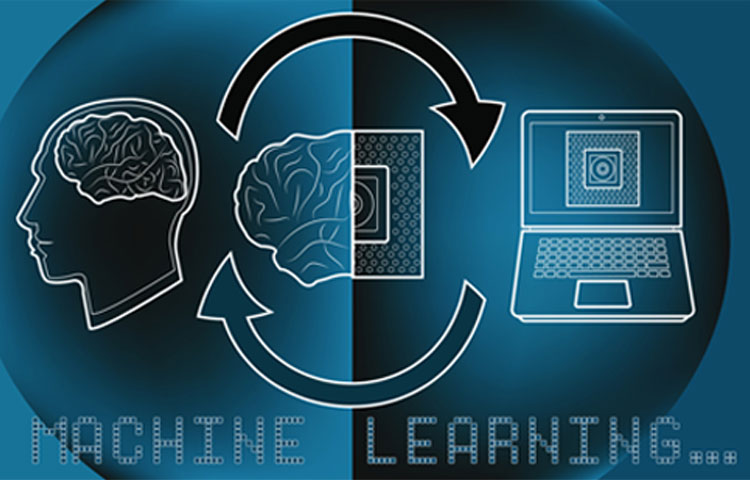

Prefer to listen instead? Here’s the podcast version of this article.
It’s a bit difficult to narrow down one specific definition of machine learning (ML), because you’ll get a different explanation depending on whom you ask.
Nvidia defines it as “the practice of using algorithms to parse data, learn from it, and then make a determination or prediction about something in the world.” McKinsey&Company agree with Nvidia, saying that ML is “based on algorithms that can learn from data without relying on rules-based programming.” Stanford suggests that ML is “the science of getting computers to act without being explicitly programmed.”
And Carnegie Mellon’s definition—also a favorite of many other experts in the field—states “the field of Machine Learning seeks to answer the question ‘How can we build computer systems that automatically improve with experience, and what are the fundamental laws that govern all learning processes?’”
Regardless of the definition you choose, at its most basic level, the goal of machine learning is to adapt to new data independently and make decisions and recommendations based on thousands of calculations and analyses. It’s done by infusing artificial intelligence machines or systems with the ability to learn from the data they’re fed. The systems learn, identify patterns, and make decisions with minimal intervention from humans. Ideally, machines increase accuracy and efficiency and remove (or greatly reduce) the possibility of human error.
The nearly limitless quantity of available data, affordable data storage, and growth of less expensive and more powerful processing has propelled the growth of ML. Now many industries are developing more robust models capable of analyzing bigger and more complex data while delivering faster, more accurate results on vast scales. ML tools enable organizations to more quickly identify profitable opportunities and potential risks.
The practical applications of machine learning drive business results which can dramatically affect a company’s bottom line. New techniques in the field are evolving rapidly and expanded the application of ML to nearly limitless possibilities. Industries that depend on vast quantities of data—and need a system to analyze it efficiently and accurately, have embraced ML as the best way to build models, strategize, and plan.
Healthcare. The proliferation of wearable sensors and devices that monitor everything from pulse rates and steps walked to oxygen and sugar levels and even sleeping patterns has generated a significant volume of data that enable doctors to assess their patients’ health in real time. One new ML algorithm detects cancerous tumors on mammograms; another identifies skin cancer; a third can analyze retinal images to diagnose diabetic retinopathy.
Government. Systems that use machine learning enable government officials to use data to predict potential future scenarios and adapt to rapidly changing situations. ML can help to improve cybersecurity and cyber intelligence, support counterterrorism efforts, optimize operational preparedness, logistics management, and predictive maintenance, and reduce failure rates. This recent article highlights 10 more applications for machine learning within the healthcare industry.
Marketing and sales. Machine learning is even revolutionizing the marketing sector as many companies have successfully implemented artificial intelligence (AI) and ML to increase and enhance customer satisfaction by over 10%. In fact, according to Forbes, “57% of enterprise executives believe that the most important growth benefit of AI and ML will be improving customer experiences and support.
E-commerce and social media sites use ML to analyze your buying and search history—and make recommendations on other items to purchase, based on your past habits. Many experts theorize that the future of retail will be driven by AI and ML as systems become even more adept at capturing, analyzing, and using data to personalize individuals’ shopping experiences and develop customized, targeted marketing campaigns.
Transportation. Efficiency and accuracy are key to profitability within this sector; so is the ability to predict and mitigate potential problems. ML’s data analysis and modeling functions dovetail perfectly with businesses within the delivery, public transportation, and freight transport sectors. ML uses algorithms to find factors that positively and negatively impact a supply chain’s success, making machine learning a critical component within supply chain management.
Within logistics, ML facilitates the ability of schedulers to optimize carrier selection, rating, routing, and QC processes, which saves money and improves efficiency. Its ability to analyze thousands of data points simultaneously and apply algorithms more quickly than any human enables ML to solve problems that people haven’t yet identified.
Financial services. The insights provided by ML in this industry allow investors to identify new opportunities or know when to trade. Data mining pinpoints high-risk clients and informs cybersurveillance to find and mitigate signs of fraud. ML can help calibrate financial portfolios or assess risk for loan and insurance underwriting.
The future of AI and ML in this industry includes an ability to evaluate hedge funds and analyze stock market movement to make financial recommendations. It may render usernames, passwords, and security questions obsolete by taking anomaly -detection to the next level: facial or voice recognition, or other biometric data.
Oil and gas. ML and AI are already working to find new energy sources and analyze mineral deposits in the ground, predict refinery sensor failure, and streamline oil distribution to increase efficiency and shrink costs. ML is revolutionizing the industry with its case-based reasoning, reservoir modeling, and drill floor automation, too. And above all, machine learning is helping to make this dangerous industry safer.
Manufacturing. Machine learning is no stranger to the vast manufacturing industry, either. It’s accomplishing the goal of improving operations from conceptualization to final delivery, significantly reducing error rates, improving predictive maintenance, and increasing inventory turns.
Not unlike the transportation industry, ML has helped companies improve logistical solutions that include asset, supply chain, and inventory management. It also plays a key role in enhancing overall equipment effectiveness (OEE) by measuring the availability, performance, and quality of assembly equipment.
Is all the hype surrounding machine learning really worth it? Most experts say “yes” – with this caveat: The key is understanding how to use it to meet each individual business’s challenges and goals. It’s clear, based on a significant volume of data and evidence, that machine learning and artificial intelligence are here to stay. The trick, however, is recognizing that ML and AI aren’t a magic spell that work for every situation.
Experts agree that it’s important to clearly understand the value that incorporating ML will bring to your business. If it’s negligible, the expense may not bring a significant enough return on investment (ROI). This article from Business highlights four questions to ask before you consider beginning an ML project.
If you’re interested in leveraging artificial intelligence and machine learning for your business, please contact us.
WEBINAR